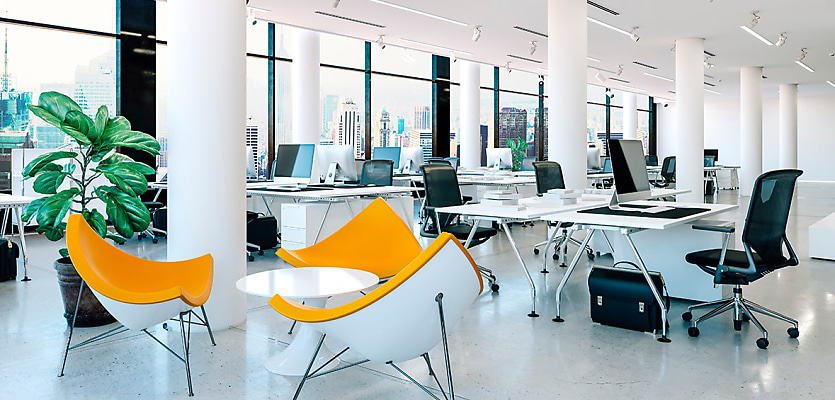With office space being redefined in the post-pandemic era, a new report sheds light on how commercial real estate is relying on technologies and data-driven insights to remain “agile and flexible”.
As companies emerge from the pandemic, corporate real estate leaders’ view of the workplace is evolving, according to JLL’s latest Future of Work research.
In its latest survey, more than half of organisations indicated their plans to make remote working a permanent option for their workforce by 2025.
However, more than 70 per cent of commercial real estate executives hold the belief that the office will remain an integral component of their workplace ecosystems.
“As employees adapt to the post-pandemic world and office usage patterns continue to evolve, the office is being reimagined for new purposes. A new vision of the agile, smart office and CRE portfolio is taking shape, supported by dynamic workplace services aligned with today’s employee needs,” the report stated.
The report highlighted that the rise of the hybrid work model has posed “new challenges”, as it requires workplace and portfolio management strategies that are “becoming increasingly complex and sophisticated”.
“For many organisations, the corporate office is becoming the primary destination for group work, including training, mentoring, collaboration and focusing around a specific project,” the report noted.
In fact, data showed that 45 per cent of CRE executives view “collaborative working” as a primary purpose of office space.
To respond to the changing demands, the report highlighted that CRE executives are adopting a new concept into their facility management (FM) model: dynamic service provisioning.
This approach to facility management involves providing flexible workplace services that can be adjusted based on real-time occupancy data, which can help determine which services, like cleaning and food service, can be selectively and continuously adjusted while core services are delivered consistently, the report explained.
“Dynamic provisioning and other on-demand, scalable workplace approaches are made possible with predictive insights derived from the data produced by today’s building and workplace technologies,” the report stated.
JLL’s report highlighted that smart building technologies, such as sensors and Internet of Things (IoT) devices, play a key role in collecting data and generating insights that inform FM services.
For example, a smart building management platform can direct the building automation system to turn the HVAC on and off in response to real-time carbon dioxide levels or meeting room occupancy.
Due to the pressing need for insights based on real-time data, the report highlighted that 80 per cent of CRE executives are planning to incorporate at least 10 of the 15 key technologies required for the hybrid model.
The report highlighted how smart buildings offer several benefits, such as reducing energy waste by up to 20 per cent, improving employee experience and productivity, generating insights for proactive maintenance, appealing to property investors with higher rental rates, occupancy levels and sales prices, and enabling efficient space management through data and automation.







You are not authorised to post comments.
Comments will undergo moderation before they get published.